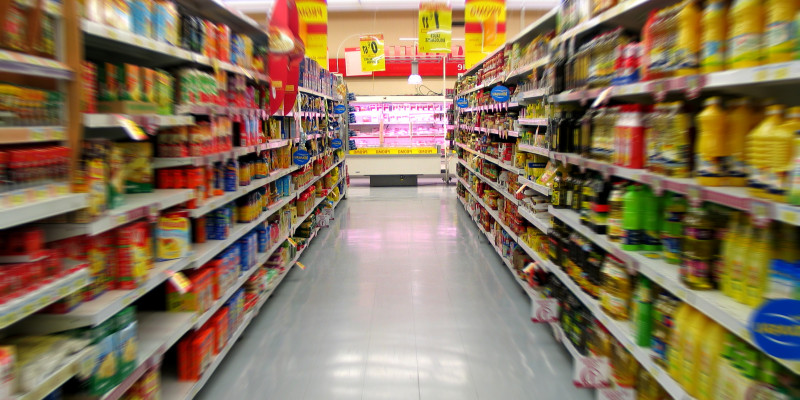News
- Regulation (EU) 2024/573 on fluorinated greenhouse gases has been published and entered into force on 11 March 2024
- The new Kälte-Klima-Richtlinie national came into force on 1 March 2024. By the end of 2026, companies can apply for funding for energy-efficient stationary refrigeration and air conditioning systems using natural refrigerants.
Climate-friendly cooling of food
If you want to stop using HFC refrigerants, you have the option today. With various concepts, halogen-free substances such as hydrocarbons and CO2 are used as refrigerants in refrigeration systems in the food retail trade. Such systems have been implemented worldwide and have reached the state of the art in industrialized countries.
As energy costs rise, the industry is becoming increasingly willing to address the issue of energy efficiency. After all, there is considerable potential for energy savings that can be realized both technically and economically. When building new stores, it is already common practice to consider the supermarket as a single energy system that uses the heat generated by refrigeration as an energy source for heating and hot water. As for supermarket refurbishment projects, customized concepts are in demand that meet each store’s specific requirements. Numerous projects have shown that supermarket energy modernization can reduce energy costs by up to nearly 50 percent compared to supermarkets that use conventional solutions.
Transcritical CO2 refrigeration systems for the food retail sector are available for a wide performance range: from small organic supermarkets to discount stores and hypermarkets. Thanks to technical innovations such as parallel compression, ejector technology and flooded evaporators, the energy efficiency of CO2 (R-744) systems has increased considerably in recent years, meaning that they can now be operated efficiently and in a climate-friendly manner in all climate zones. Other energy-efficient refrigeration systems for supermarkets use propane (R-290) as a refrigerant - often in an indirect version.
Even though, strictly speaking, supermarket refrigeration is classified as commercial refrigeration, it is considered separately due to the different equipment and size of the refrigeration technology and the typically individual and customized refrigeration systems.
In Germany, funding can be applied for within the framework of the Kälte-Klima-Richtlinie issued by the Federal Ministry of Economics and Climate Protection for newly constructed or newly installed stationary refrigeration and air conditioning systems that are operated with non-halogenated refrigerants. In addition to new systems, the efficiency conversion of existing small systems is also eligible for funding if they are converted to hydrocarbon refrigerants at the same time. It should be noted that refrigeration generators, including the associated components and systems, which are primarily used to cool refrigerated display cabinets, as well as plug-in refrigerated display cabinets, are no longer eligible for funding from 2024.
Legal regulations and availability of HFC refrigerants
Regulation (EU) 2024/573 on fluorinated greenhouse gases, which came into force on 11 March 2024, will gradually reduce the availability of HFC refrigerants and reduce it to zero by 2050. The shortage already means that frequently used HFC refrigerants are only available to a limited extent, including for the maintenance and repair of refrigeration and air conditioning systems. This also affects HFC refrigerant blends with a medium global warming potential (GWP) such as R-454C (GWP = 146), R-455A (GWP = 146) or R-513A (GWP = 629), which contain unsaturated HFCs such as R-1234yf and have only been available on the market for a few years. The phase-out process also leads to increased prices for HFC refrigerants. Natural refrigerants, on the other hand, are not subject to shortages and are therefore recommended as alternatives.
The F-Gas Regulation also includes some bans that are relevant for supermarkets: For example, refrigerators and freezers for commercial use as well as self-contained refrigeration systems may no longer be placed on the market in the EU from 1 January 2025 if they contain fluorinated greenhouse gases with a GWP of 150 or more. There are also restrictions with regard to GWP when placing other, non-self-contained refrigeration systems and centralized refrigeration systems on the market.
 Click to enlarge
Click to enlarge
